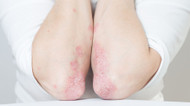Why Does Eczema Flare Up? Unveiling the Three Most Common Triggers
Posted by Joan Tay, Founder of SoapCeuticals on 6th Jul 2023
Eczema, also known as atopic dermatitis, is estimated to affect 20 percent of children and 11 percent of adults in Singapore. While the exact cause of eczema is still not fully understood, it is widely recognized that certain triggers can lead to flare-ups and worsen the symptoms. In this blog, we will explore three of the most common triggers for eczema in Singapore: house dust mites, heat, and humidity. Understanding these triggers can you better manage your condition and find effective relief.
3 Most Common Eczema Triggers:
House Dust Mites
House dust mites are microscopic creatures that thrive in warm and humid environments. These tiny pests can be found in every home, living in bedding, upholstered furniture, carpets, and other soft furnishings. For individuals with eczema, exposure to house dust mites can trigger an immune response, leading to redness, itching, and inflammation of the skin.
House dust mites produce allergens that can exacerbate eczema symptoms. When these allergens come into contact with the skin, they can cause an allergic reaction and trigger a flare-up. It is important to regularly clean and vacuum your living space, wash bedding in hot water, and use allergen-proof covers to reduce exposure to house dust mites.
Heat
Heat is another common trigger for eczema flare-ups. When the body becomes overheated, blood vessels dilate, and sweat is produced as a natural cooling mechanism. However, for individuals with eczema, excessive heat can lead to increased itchiness, dryness, and irritation of the skin.
During hot weather or activities that induce sweating, the sweat can irritate the skin and disrupt the skin barrier function, making it more susceptible to eczema flare-ups. It is important to stay cool and avoid prolonged exposure to hot environments. Wearing loose-fitting, breathable clothing made from natural fibers like cotton can help regulate body temperature and reduce the risk of heat-related eczema flare-ups.
Humidity
Humidity refers to the amount of moisture present in the air. High humidity levels can contribute to eczema flare-ups due to increased moisture on the skin's surface, which can disrupt the skin barrier and lead to inflammation. On the other hand, low humidity levels can cause dryness, leading to itchiness and further aggravation of eczema symptoms.
Finding the right balance of humidity is crucial for individuals with eczema. Using a humidifier in dry environments can add moisture to the air, while using air conditioners or dehumidifiers in humid environments can help reduce excessive moisture. Additionally, regular moisturizing of the skin is essential to maintain proper hydration levels and protect the skin barrier.
Conclusion:
Identifying and understanding the triggers that can cause eczema flare-ups is a vital step in managing this chronic skin condition. House dust mites, heat, and humidity are among the most common triggers that individuals with eczema should be aware of. By taking proactive measures such as reducing exposure to house dust mites, staying cool in hot weather, and maintaining optimal humidity levels, individuals with eczema can minimize flare-ups and find relief from their symptoms. In a hot and humid country like Singapore, it is essential to take cool showers to gently cleanse skin to remove sweat and bacteria buildup. Remember, it is always recommended to consult with a healthcare professional for personalized advice and treatment options based on your specific needs.

